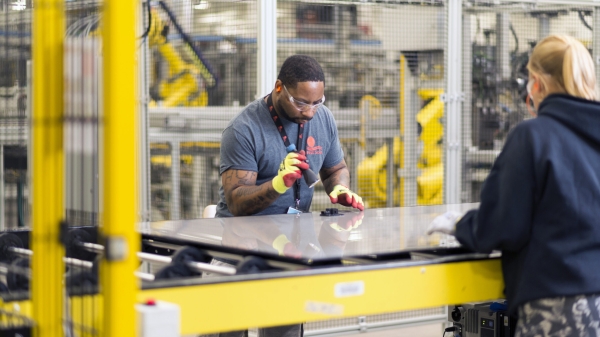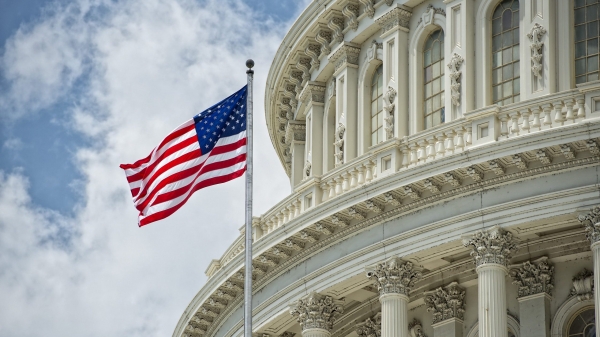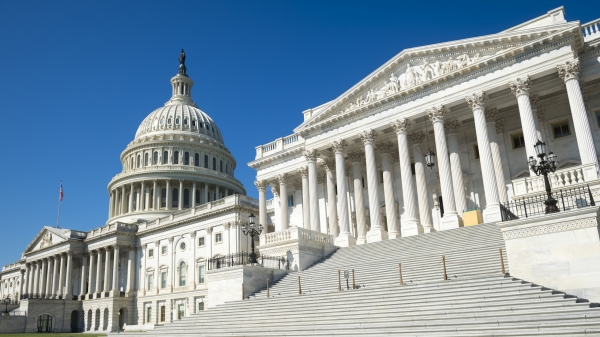In strongly worded new report signed by more than 11,000 scientists in 153 countries the authors lay bare a “climate emergency” they say requires rapid changes in the way humans live to prevent the worst predictions from coming true.
Titled the “World scientists’ warning of a climate emergency” the report, published Tuesday in the journal Bioscience, shows with clear, simple charts and strong language what the scientists say is a need for quick changes to food and energy production, and a shift away from a “pursuit of affluence” and toward prioritizing basic needs and reducing inequality.
“Scientists have a moral obligation to clearly warn humanity of any catastrophic threat and to “tell it like it is.” On the basis of this obligation and the graphical indicators presented below, we declare, with more than 11,000 scientist signatories from around the world, clearly and unequivocally that planet Earth is facing a climate emergency,” the report opens.
James McClintock, professor of polar and marine biology at the University of Alabama at Birmingham who has studied climate change for decades, told APR on Thursday that the report’s strong language is a sign of growing urgency among scientists globally.
“I think that this article, published in a reputable journal, reviewed by eminent scientists, and endorsed by the signatures of over 11,000 scientists – is indicative of the growing sense of urgency that scientists around the world are feeling about when it comes to truly addressing climate change,” McClintock said. “In some sense, scientists are reaching their own tipping point. Scientists, such as myself, are increasingly frustrated that society is generally moving forward with a business as usual model, despite strong factually based warnings from the scientific community that now span decades that climate change is already causing consideration, and in some cases, dire reductions in air quality, human health, biodiversity, and the integrity of our coastlines and oceans.”
McClintock said scientists also deeply understand that society has the technological tools to fully address climate change, and that by doing so “everyone stands to benefit through innovation, new jobs, and importantly, improved and sustainable, human health and condition.”
The report’s creation was headed by Oregon State University ecologists Bill Ripple and Christopher Wolf, William Moomaw at the Fletcher School at Tufts University, Thomas Newsome with the School of Life and Environmental Sciences at The University of Sydney, Phoebe Barnard with the Conservation Biology Institute in Oregon and with the African Climate and Development Initiative, at the University of Cape Town, in Cape Town, South Africa.
Looking back over the last 40 years the report cites data showing drastic increases in greenhouse gas emissions, global tree cover loss, meat production and use of fossil fuels. Those changes track closely with an increase in surface temperatures, ocean heat, extreme weather events and decreases in Antarctic and Greenland ice mass and glacier thickness.
“Despite 40 years of global climate negotiations, with few exceptions, we have generally conducted business as usual and have largely failed to address this predicament,” the report states. “The climate crisis has arrived and is accelerating faster than most scientists expected. It is more severe than anticipated, threatening natural ecosystems and the fate of humanity.”
The study calls for a quick curtail in the loss of forests, marine and plant life, which all play roles in carbon cycling and storage. It also calls for prompt reductions in emissions of short-lived pollutants such as methane, soot and hydrofluorocarbons.
“Doing this could slow climate feedback loops and potentially reduce the short-term warming trend by more than 50% over the next few decades while saving millions of lives and increasing crop yields due to reduced air pollution,” the report states.
“It is important to note that the authors of this paper also make it clear that there is some good news: declines in global birth rates, decelerated forest loss in some regions, increases in solar and wind power, and institutional fossil fuel divestment to the tune of more than 7 trillion dollars, and the proportion of emissions covered by carbon pricing,” McClintock said. “In other words, with action, there is hope.”
Authors of the report wrote that the data was “designed to be useful to the public, policymakers, the business community, and those working to implement the Paris climate agreement, the United Nations’ Sustainable Development Goals, and the Aichi Biodiversity Targets.”
The report comes as President Donald Trump has begun a yearlong process to exit from the Paris climate agreement, which would make the U.S., the second largest greenhouse gas producer, the only country to leave the agreement, aimed at combating climate change.
According to the Yale Program on Climate Change Communication a majority of Alabamians – 58 percent – believe global warming is happening, while just 46 percent believe it’s caused by human activity, compared to 53 percent who think so nationwide.
Asked if they are worried about global warming 52 percent of Alabamians said they were, 60 percent said global warming will harm plants and animals, 58 percent said it would harm future generations but just 37 percent said it would harm them personally.
Alabamians seemed to agree, though, that lawmakers in the state and in Washington D.C. need to do more to address global warming. Fifty three percent said local officials and Alabama’s governor should do more, 54 percent said Congress should do more and 55 percent of Alabamians think Trump should do more to address global warming.























































